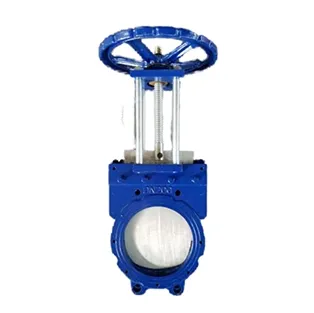needle valve
Understanding Needle Valves Function, Applications, and Benefits
Needle valves are essential components in various engineering and industrial applications, offering precise control over the flow of fluids and gases. Unlike standard valves, a needle valve features a slender, tapered point at the end of a valve stem that fits into a seat. This design allows for fine adjustments of the flow rate, which is particularly valuable in systems requiring careful regulation of fluid movement.
Functionality of Needle Valves
The primary function of a needle valve is to regulate flow. The needle-shaped plunger can move up or down within the valve, allowing for minute adjustments that can achieve very small flow rates. This makes needle valves ideal for applications where precise control is crucial – for example, in laboratories where specific quantities of gases or liquids need to be introduced gradually. By turning the valve’s handle, users can easily manipulate the plunger's position, thus varying the flow rate depending on operational requirements.
Needle valves can be equipped with various types of actuators, including manual, pneumatic, or electric ones, which provide additional flexibility in managing flow. This versatility enables needle valves to be integrated into numerous systems where exact flow measurements are not just advantageous but often necessary for safety and operational efficiency.
Applications of Needle Valves
Needle valves find extensive use across multiple industries. In the chemical processing industry, they play a crucial role in controlling the flow of aggressive chemicals, ensuring that mixing processes occur seamlessly without risking leaks or spills. In the oil and gas industry, needle valves are commonly used in wellhead applications to manage oil and gas flow rates accurately, contributing to safe and efficient extraction processes.
needle valve

Moreover, in the medical field, needle valves are used in various devices such as gas flow meters. Precision in controlling the flow of medical gases, such as oxygen, is vital for patient safety. Similarly, in hydraulic systems, needle valves help manage the speed of actuators, ensuring smooth operations while preventing pressure build-up that could lead to system failures.
Benefits of Using Needle Valves
One of the primary advantages of needle valves is their ability to provide exceptional flow control. The ability to make precise adjustments means they can prevent over-pressurization or excessive flow that might damage sensitive equipment. Additionally, their compact design allows for easy integration into existing systems without requiring significant modifications.
Durability is another key benefit; needle valves are typically made from robust materials such as stainless steel or brass, which can withstand harsh conditions, including high temperatures and corrosive environments. This longevity reduces the need for frequent replacements, ultimately saving costs over time.
Conclusion
In summary, needle valves are indispensable tools in various industries due to their precision in flow control and versatility in applications. From laboratories to large-scale industrial operations, the ability to adjust flow rates finely means increased safety and efficiency. As industries continue to advance, the role of needle valves will remain significant, empowering engineers and technicians to ensure their systems operate at optimal levels. As you consider options for flow control solutions, needle valves stand out as a reliable choice with proven benefits across diverse applications.
-
Breakthrough in Domestic Low Temperature Valve Technology in ChinaNewsAug.18,2025
-
From Machinery to Intelligent Brain: The Digital Transformation Wave of the Valve IndustryNewsAug.18,2025
-
PCVEXPO 2025NewsAug.18,2025
-
The Key to Fluid Control: Exploring the Advantages of Ball Valves in Industrial SystemsNewsJul.09,2025
-
The Versatile World of 1, 2, and 3 Piece Ball ValvesNewsJul.09,2025
-
Stainless Steel Ball Valves: The Ideal Choice for Efficient Flow ControlNewsJul.09,2025
-
Optimizing Fluid Control with Ball Float ValvesNewsJul.09,2025




